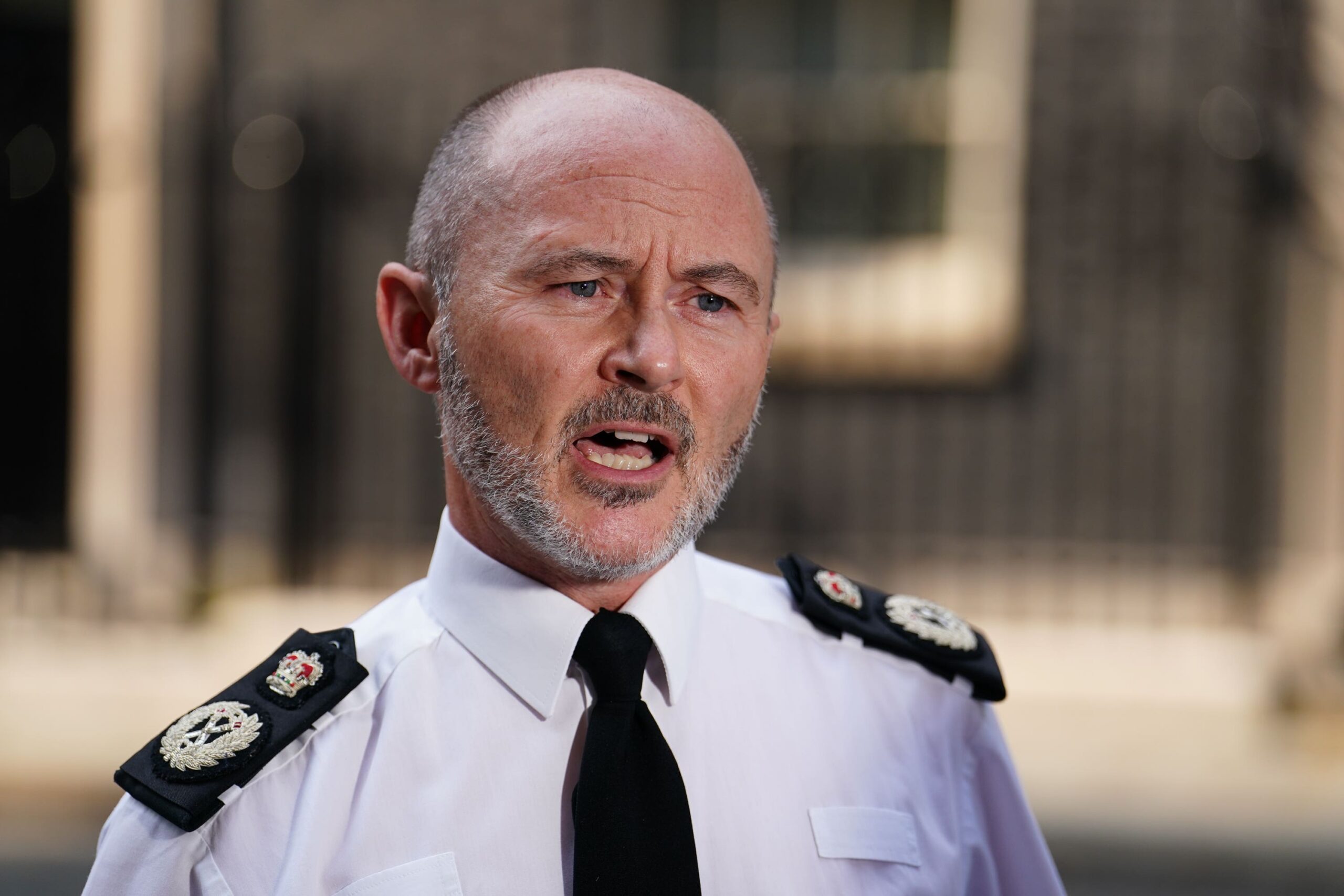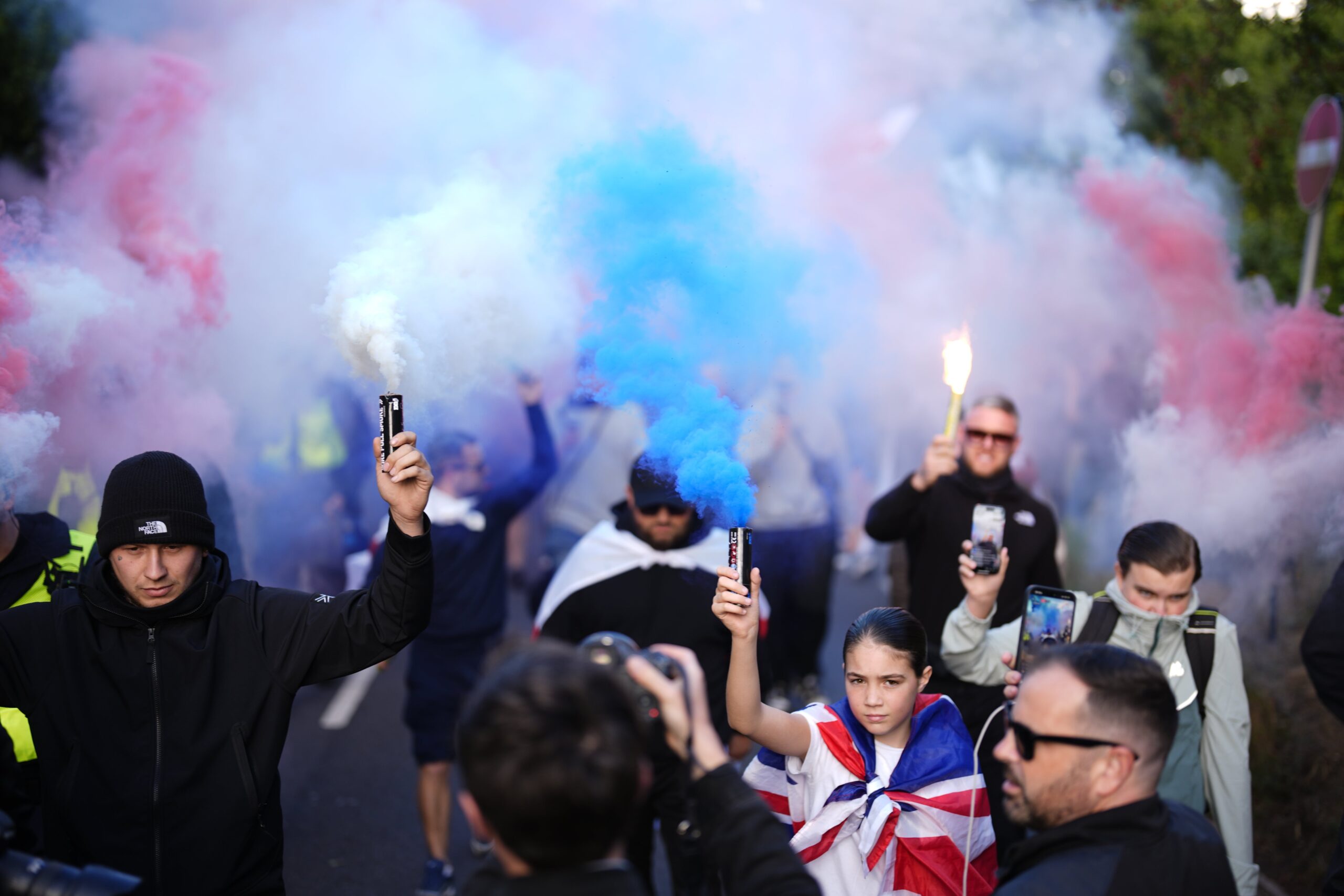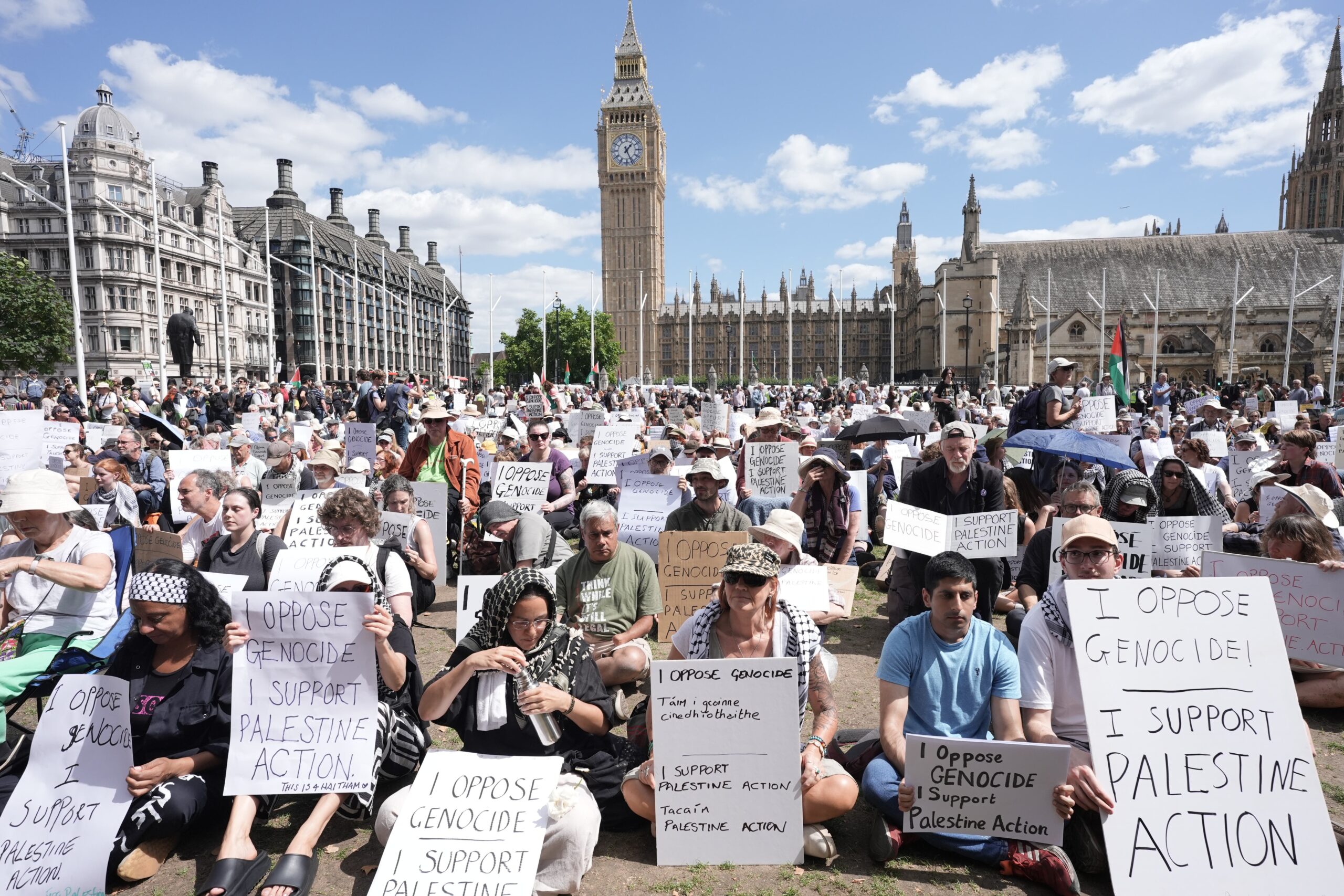Under strain police forces have dealt with a three-year record number of protests this summer as tensions flared over the migrant crisis and the war in Gaza.
Forces across the UK faced 3,081 protests between June and August in the highest number in three years, figures from the National Police Chiefs’ Council (NPCC) reveal.
This exceeds protest activity during last summer’s riots, which saw forces grapple with 2942 protests in the same three-month period in 2024, and is up threefold on 928 demonstrations in 2023.
NPCC chairman Gavin Stephens warned the increasing tension is placing forces under “chronic pressure” as he urged leaders to avoid sowing further division.
“It’s clear to all of us that we can see more community tension and more division,” he said. “And I think we all have a responsibility, policing included, to set the tone.”
He added: “Anybody in a leadership position should think about how we can reduce and diffuse tensions and not sow division.”

His comments come amid widespread protests at hotels housing asylum seekers and an increasing backlash against the Home Office’s decision to designate Palestine Action as a terrorist group.
Police are preparing for up to 40 more protests this weekend, including another major demonstration in London in which up to 1,000 people have pledged to risk arrest by holding signs supporting the banned group.
While last summer’s widespread disorder was acute, protests this year were more of a chronic pressure for police, Mr Stephens said, with a recent wellbeing survey showing 55 per cent of constables are experiencing persistent physical fatigue.
He dismissed claims that the country is on the verge of civil disobedience as “exaggerated”, saying communities will find their own way to reunite and “reset”.

He said police “absolutely support” the right to peaceful protest but warned too much is being asked of forces operating under an outdated infrastructure model as he called for investment in police reform.
The strain of ongoing protest activity is “costing us financially” and diverting officers from their day-to-day duties, he added, warning that without investment police would make “slower progress” on meeting key targets such as halving knife crime and violence against women and girls.
“I think people need to understand that the officers, staff and volunteers that respond to this is the same group of officers, staff and volunteers that are doing all the other things that are asked of the police,” he said.
“And so they come from response teams and investigation teams and neighbourhood policing teams and roads policing.
“We don’t have an extra resource for public order and public safety – it comes from day-to-day duties.”

Policing leaders are pushing for major reform of the structure of forces in England and Wales and how they are funded.
A government white paper on potential changes to the service is expected to be published in the coming months.
Mr Stephens said: “We’re asking too much of the people in infrastructure that we can that we currently have.”
Chiefs want more powers at a national level with a stronger national centre, changes to the current “slow and cumbersome” decision making process across 43 forces and an overhaul of how funding is calculated for each force.
